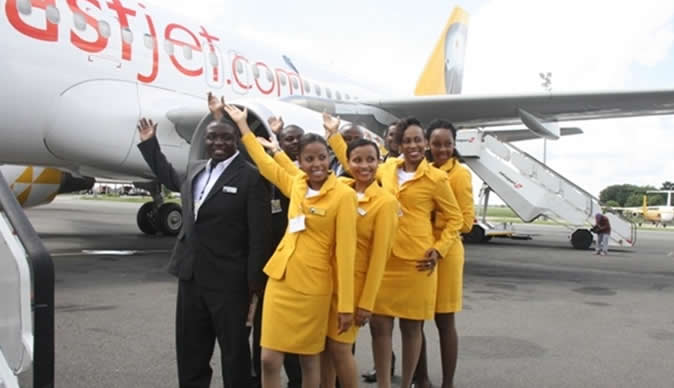Protection given to companies under corporate
rescue proceedings
A company can be placed under voluntary corporate rescue proceedings in terms of section 122 or involuntary through a Court application as provided for in section 124 of the Act
I have written many articles on corporate rescue proceedings before. I have explained
that corporate rescue is also known by other terms such as business rescue, judicial
management, corporate recovery or administration.
In Zimbabwe, it is regulated by the Insolvency Act (Chapter 6:07) of 2018, hereinafter
(the Act). According to the Act corporate rescue means the proceedings to facilitate the
rehabilitation of a company that is financially distressed.
According to section 121(b) corporate rescue provides for: temporary supervision of the
company and of the management of its affairs, business and property, temporary
moratorium (relief) on the rights of claimants against the company or in respect of
property in its possession, the development and presentation, if approved, of a plan to
rescue the company by restructuring its affairs, business, property, debt and other
liabilities and equity.
Placing a company under corporate rescue
A company can be placed under voluntary corporate rescue proceedings in terms of
section 122 or involuntary through a Court application as provided for in section 124 of
the Act.
Voluntary corporate rescue
According to section 122 the board of a company may resolve that the company
voluntarily begin corporate rescue proceedings and place the company under supervision
if the board has reasonable grounds to believe that: “The company is financially
distressed; and There appears to be a reasonable prospect of rescuing the company.
According to section 121(f) “financially distressed,” in reference to a particular company
at any particular time, means that “It appears to be reasonably unlikely that the
company will be able to pay all of its debts as they become due and payable within the
immediately ensuing six months, or it appears to be reasonably likely that the company
will become insolvent within the immediately ensuing six months.”
Involuntary corporate rescue
According to section 124 (1) of the Act an affected person may apply to a Court at any
time for an order placing the company under supervision and commencing corporate
rescue proceedings.
An affected person is defined in section 121(1)(a) to mean: a shareholder of the company,
or creditor of the company, or any registered trade union representing employees of the
company; and if any of the employees of the company are not represented by a registered
trade union, each of those employees or their respective representatives;
According to section 124(4) after considering an application in made in terms of section
124(1) the Court may make an order placing the company under supervision and
commencing corporate rescue proceedings if the Court is satisfied that: The company is
financially distressed, or The company has failed to pay over any amount in terms of an
obligation under or in terms of public regulation, or contract, with respect to
employment-related matters, or It is otherwise just and equitable to do so for financial
reasons, and there is a reasonable prospect for rescuing the company.
General moratorium on legal proceedings against the company in under corporate rescue
Section 126 – General moratorium on legal proceedings against the company, provides
legal protection against companies under insolvency practice.
According to section 126(1) during corporate rescue proceedings, no legal proceeding,
including enforcement action, against the company or in relation to any property
belonging to the company, or lawfully in its possession, may be commenced or proceeded
with in any forum except with the written consent of the practitioner; or with the leave of
the Court and in accordance with any terms the Court considers suitable; or as a set-off
against any claim made by the company in any legal proceedings, irrespective of whether
those proceedings commenced before or after the corporate rescue proceedings began; or
Criminal proceedings against the company or any of its directors or officers; or
proceedings concerning any property or right over which the company exercises the
powers of a trustee; or
Proceedings by a regulatory authority in the execution of its duties after written
notification to the corporate rescue practitioner.
Section 126(2) provides that during corporate rescue proceedings, a guarantee or surety
by a company in favour of any other person may not be enforced by any person against
the company except with leave of the Court and in accordance with any terms the Court
considers just and equitable in the circumstances.
Further, according to section 126(3) if any right to commence proceedings or otherwise
assert a claim against a company is subject to a time limit, the measurement of that time
must be suspended during the company’s corporate rescue proceedings.
Conclusion
From the foregoing, it is clear that a company under corporate rescue is protected from
legal action except in certain specified situations. A person who intends to sue such a
company in civil matters needs the written consent of the corporate rescue practitioner
for that company or leave or permission of the Court.
Disclaimer
This simplified article is for general information purposes only and does not constitute
the writer’s professional advice.
Godknows (GK) Hofisi, LLB(UNISA), B Acc(UZ), Hons B.Compt (UNISA), CA(Z),
MBA(EBS, Heriot- Watt, UK) is a practising commercial lawyer and conveyancer,
chartered accountant, corporate rescue practitioner, registered tax accountant,
consultant in deal structuring and business valuer. He can be contacted on +263 772 246
900 or gohofisi@gmail.com-The Herald










